Birmingham homes plan approved amid greenbelt row
- Published
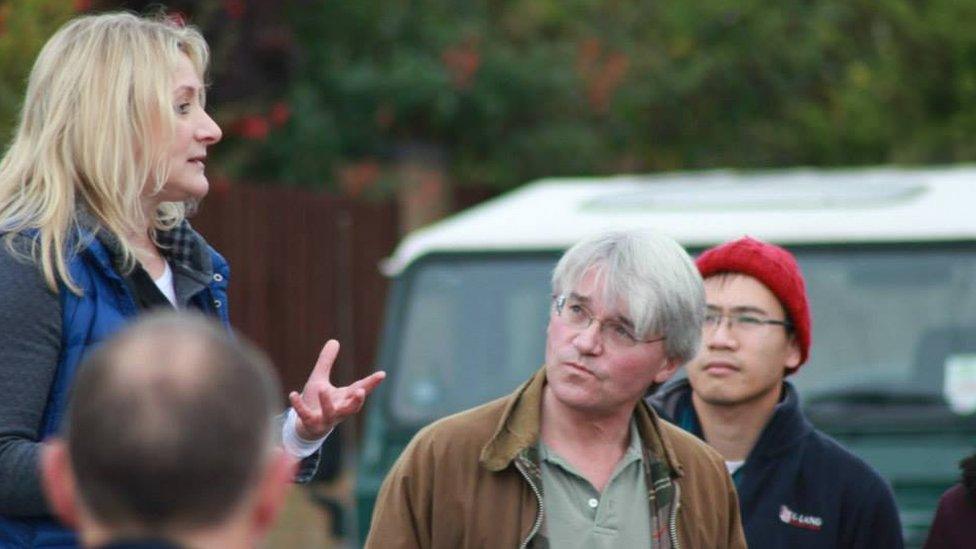
Suzanne Webb joined MP Andrew Mitchell to campaign against building on greenbelt land
A plan to build more than 50,000 homes in Birmingham has been approved by government, with 6,000 being destined for greenbelt land.
Birmingham's population is expected to rise by 150,000 by 2031 and the city council is planning to create homes and hundreds of acres of employment land.
Fields near the Sutton Coldfield bypass will have 6,000 homes and 71 hectares (175 acres) of business built on them.
Campaigners say they are "devastated" at the loss of the green space.
The planning inspectorate has approved the Birmingham Development Plan (BDP), external.
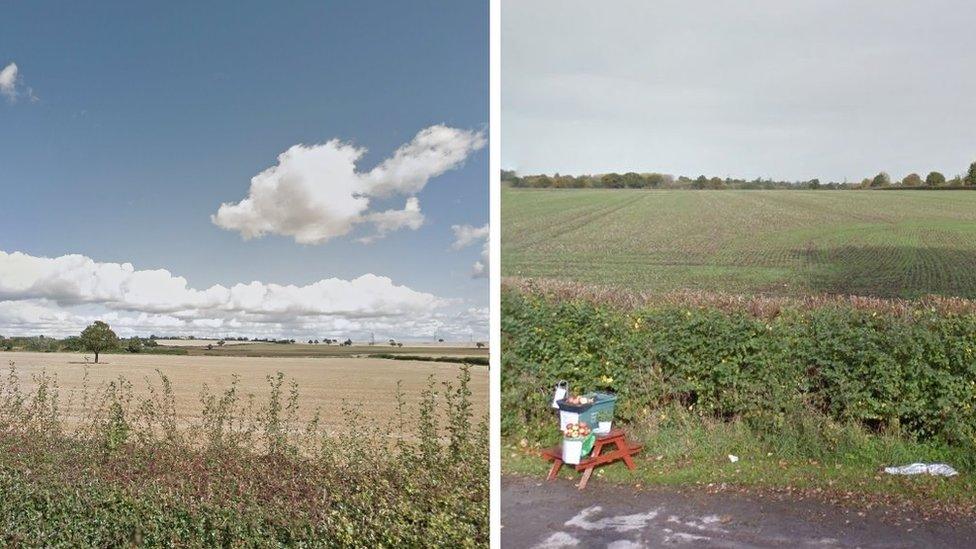
Green belt land at Peddimore, left, and Langley, either side of the Sutton Coldfield bypass, will be built on
The BDP includes 51,100 homes, 300 hectares (740 acres) of employment land, 350,000 sqm of retail floor space and 745,000 sqm of office space across the city.
There will be six economic zones and 26 enterprise zones to grow existing business and attract new investors.
Brownfield sites and already built up areas including Greater Icknield, the Southern Gateway and Longbridge will be built on first, providing space for 45,000 homes.
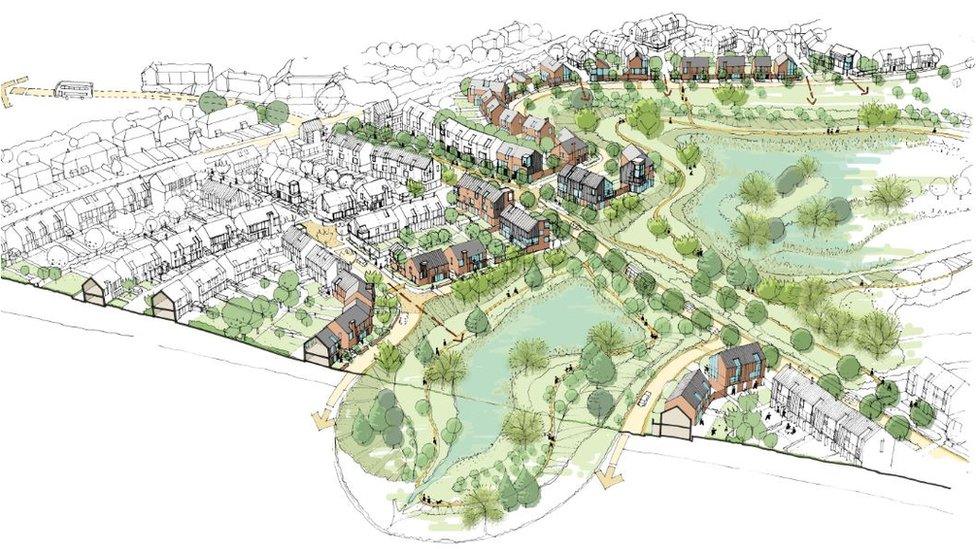
A sketch of what the Langley Hills development could look like
Planning inspector Roger Clews also supported the release of fields west of the A38 bypass in Langley for 6,000 homes and a 71 hectare (175 acre) employment site east of the road at Peddimore.
He said: "The negative environmental impacts of development are capable of being outweighed by the economic and social benefits."
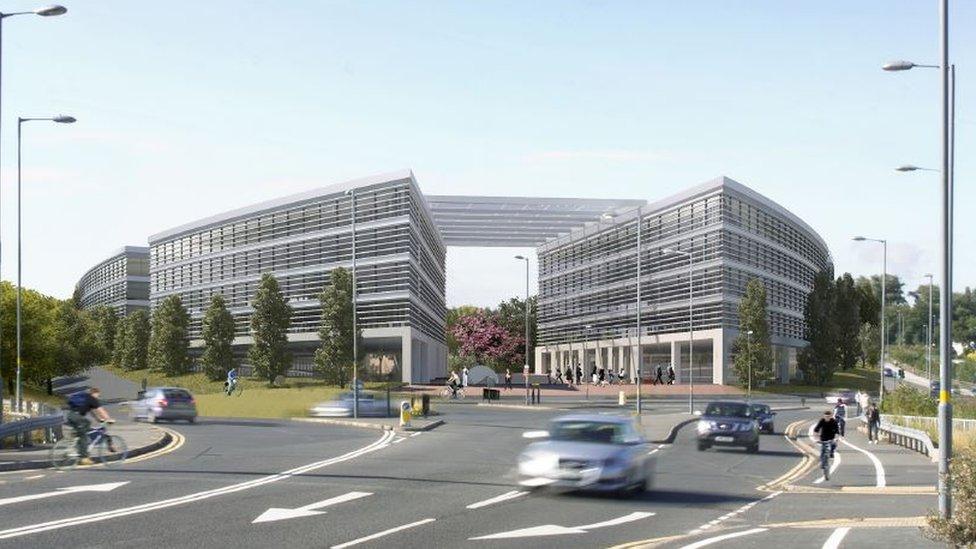
The Life Sciences Campus around the Queen Elizabeth Hospital will be one of six economic zones across the city
Suzanne Webb, spokeswoman for campaign group Project Fields, said members were "absolutely devastated" by the inspector's decision.
"These 6,000 houses will only make a small dent in a huge problem," she said.
"We need to be looking further ahead than 2031 to a new settlement elsewhere."
But builder Kris Henscoe, said: "The greenbelt is the only place you're going to find land substantial enough to take the number of houses the area needs.
"It's a lot easier to build on green belt as it's fresh land which hasn't been contaminated."
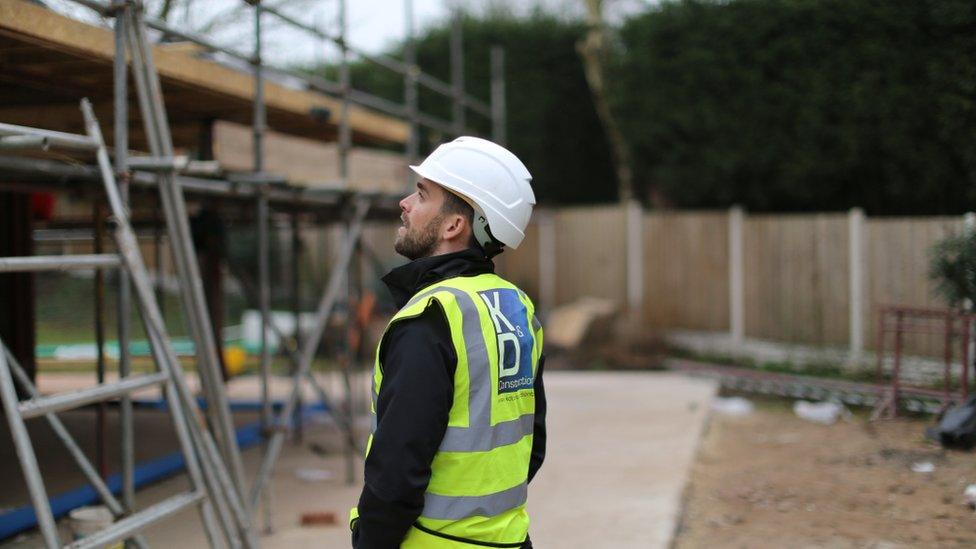
Kris Henscoe said it was a "nightmare" to find sites big enough to build on in Sutton Coldfield
Waheed Nazir, acting strategic director for economy at Birmingham City Council, said having the BDP endorsed by the planning inspector was a "major success".
"Crucially, the inspector has endorsed both our approach to the release of land on the greenbelt and the dealing with the housing shortfall," he said.